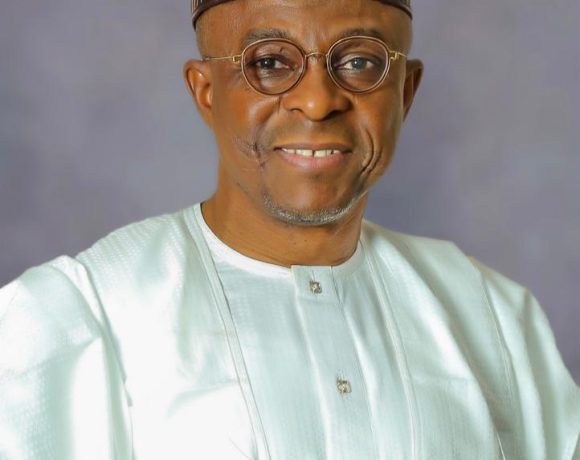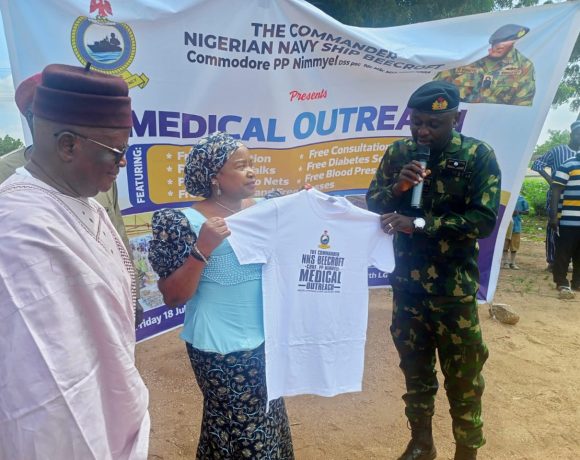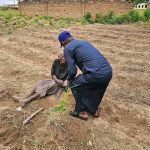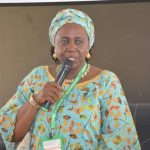$12.3 million agricultural growth deal sealed in Nigeria’s Kano north
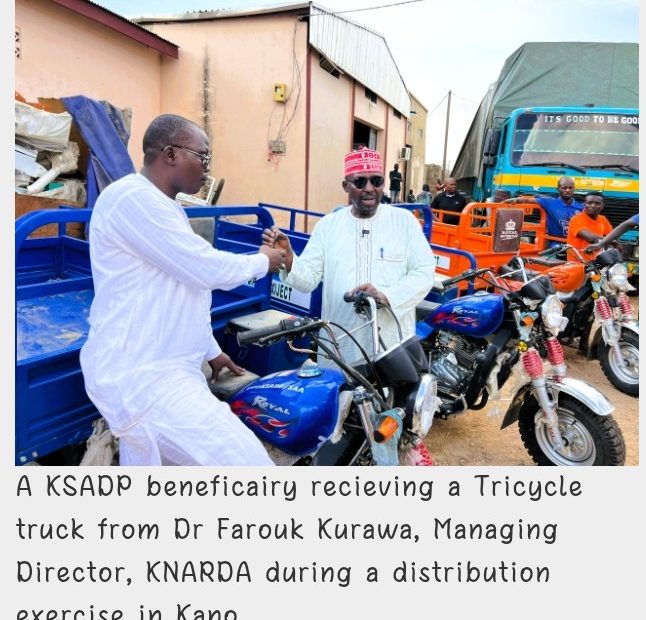
Nigeria
A Nigerian northern city, Kano State, and the Sasakawa Africa Association (SAA)-Nigeria have signed a $12.3 million Memorandum of Understanding (MoU) to establish mechanisation centres and provide farmers across the state with improved agricultural equipment.
The initiative is designed to reduce the physical drudgery associated with traditional farming methods and modernize agricultural practices, thus enhancing productivity and rural livelihoods.
According to official sources from Sasakawa Africa Association (SAA)-Nigeria, obtained by Sky News Africa yesterday,this new agreement, which marks the extension of the Kano State Agropastoral Development Project (KSADP), is financed by the Islamic Development Bank (IsDB) and the Lives and Livelihood Fund (LLF). It will run from July 1 to December 31, 2025, building on a previous five-year phase that saw significant strides in food security, rural employment, and farming income in Kano State.
Dr. Godwin Atser, the Country Director of SAA Nigeria, described the pact as a critical continuation of SAA’s longstanding partnership with Kano State’s agricultural sector. According to Dr. Atser, this deal “marks a significant step towards agricultural transformation and sustaining the gains already recorded under KSADP.” Emphasizing their mission, he maintained that SAA has been a consistent partner in supporting smallholder farmers and processors to improve productivity and livelihoods for over three decades in Kano State.

The project will focus on establishing farm service centres throughout Kano to provide access to over 9,000 pieces of agricultural machinery and equipment, including tractors, combine harvesters, power tillers, planting tools, crop protection sprayers, rice mills, threshers, and solar-powered irrigation systems. In addition to mechanisation, the funds will be used to create 22 medium-scale rice enterprises, install 40 maize and cereal flour processing units, and develop 10 artificially aerated onion storage facilities.
The Commissioner of Agriculture and Natural Resources in Kano State, Dr. Danjuma Mahmoud, underscored the government’s intensified focus on mechanisation, stating, “While much has been achieved under the KSADP, the state government is working hard to deepen mechanisation through establishing farm service centres, dispersing machinery, and promoting large-scale technology dissemination via demonstration plots, seed multiplication, and farmer training.” This strategy aims to not only increase productivity but also create sustainable employment and income opportunities within the agricultural value chain.
SAA Project Coordinator of the KSADP, Abdulrasheed Kofarmata, provided details on the scope of equipment procurement and technological interventions envisaged for this extension phase. He explained, “Better days are here for individual farmers and farmer groups in Kano State because this arrangement will fund the procurement of various tractors and implements, power tillers, combine harvesters, planters, sprayers, rice mills, threshers, and solar irrigation systems.” He highlighted that this mechanisation push also includes enterprise development to empower processing and storage capacities critical for reducing post-harvest losses and adding value to agricultural produce.
Since the inception of SAA’s operations in Kano State in the early 1990s, the association has reached over 450,000 farmers with improved practices and market-driven agro-technologies through KSADP’s cereal crop component alone. These interventions have helped farmers across the 44 local government areas of the state to increase crop yields and diversify their income sources.
In July 2024, SAA hosted representatives from IsDB, LLF, and other key donors in Kano to review the ongoing KSADP project’s impact. These visits included tours of mechanisation centres, rice demonstration plots, storage facilities, and processing units where interactions with beneficiaries underscored the transformative effects of the project. According to official SAA reports, these collaborations and donor engagements reaffirmed commitment to expanding and deepening agricultural mechanisation and value chain development in the state.

SAA’s approach is grounded in comprehensive agricultural extension systems, combining regenerative agriculture techniques, climate-smart practices, nutrition-sensitive agriculture, and market orientation to tackle challenges such as climate change, labor shortages, and youth unemployment in agriculture. This integrated approach has positioned SAA as a critical development partner not only in Kano State but also across Nigeria, where it has scaled various interventions in collaboration with local governments, research institutes, and international development agencies.
The Kano State government and SAA’s renewed partnership also complements broader national ambitions to mechanize agriculture and modernize rural economies. The mechanisation centres backed by this agreement will provide farmers with rental access to equipment, training on machine operation and maintenance, and support in adopting improved agricultural technologies. This model aims to make mechanisation accessible to smallholder farmers who traditionally face barriers due to high capital costs.
Dr. Atser elaborated on the significance of the project in his recent statements, “This initiative not only builds on KSADP’s achievements but also responds to the government’s renewed emphasis on mechanisation, which is vital for transforming agriculture and ensuring sustainability in Kano State and beyond.” He stressed that mechanisation reduces labor intensity and increases farmers’ ability to cultivate larger areas efficiently, thereby enhancing food security.
Kano farmers have already begun to experience tangible benefits from prior mechanisation efforts, including the receipt of combine harvesters, tractors, and tricycle trucks during equipment distribution drives. These tools have significantly reduced manual labor, accelerated harvesting, and improved transportation of farm produce, thus raising incomes and encouraging youth participation in agriculture.
SAA, headquartered in Japan with a country office in Kano and a strategic office in Abuja, continues to publish regular updates, including a bi-monthly e-newsletter titled “Walking with the Farmer,” chronicling its activities and the progress of projects like KSADP. The organization has a long history dating back to its founding in 1986 by notable figures including Nobel laureate Dr. Norman Borlaug and Japanese philanthropist Ryoichi Sasakawa, focusing on empowering smallholder farmers in Africa through innovation and technology.
With this $12.3 million investment, Kano State is set to accelerate agricultural mechanisation, drastically improve rural livelihoods, and boost food production — reinforcing its status as a key contributor to Nigeria’s agricultural economy and food security agenda. This collaboration exemplifies a sustainable development partnership model that others may emulate to achieve broad-based agricultural transformation in Africa.


